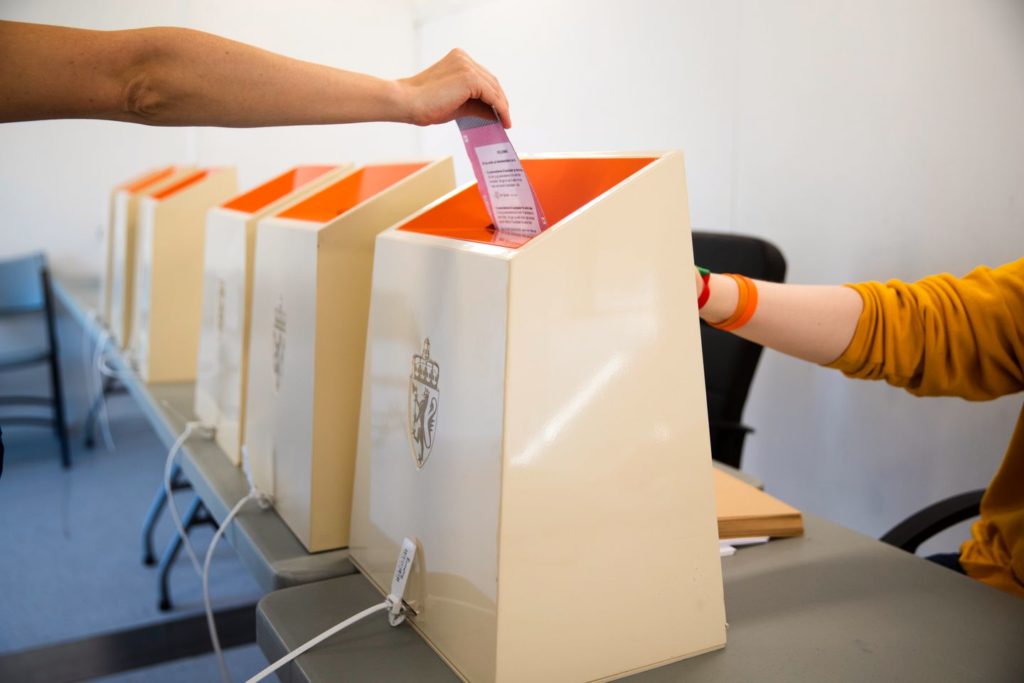
From 1 July, Norwegians abroad could vote in parliamentary elections. But Covid-19 restrictions around the world and fewer mail flights can make advance voting from abroad more complicated than before. And if the votes from abroad are to count, several government agencies are urging Norwegians abroad not to wait until the last minute.
Aftenposten reports that Norwegians abroad can vote at Norwegian embassies and consulates, or by letter. They can ask to receive election material from the embassy in the country they live in or vote via a blank sheet from the Electoral Directorate’s website.
Deputy Director Yngve Olsen Hvoslef in the Section for Consular Affairs at the Ministry of Foreign Affairs explains that it is an unpredictable situation because covid-19 restrictions change as infection cases rise. In some extreme cases, travel into the capital might not be possible, or, as earlier in the pandemic, some places enforce a stay-at-home order so what the government is concerned about is that people vote early.
Strict requirements for entry to Norway can also lead to more votes abroad, and the Ministry of Foreign Affairs confirms that they expect more voters than usual in countries such as Singapore, Thailand, the United Kingdom, and Spain where many Norwegians live. According to the Ministry of Local Government and Modernization, a total of 11,811 votes were cast abroad in the 2017 parliamentary elections, and of these, 763 voted by mail.
The Norwegian Electoral Directorate points out that it is extra important to vote early if you are voting by mail. Communications manager Kristina Brekke Jørgensen in the Norwegian Electoral Directorate encourages Norwegians abroad to “Vote as early as possible if you live in a place with a limited or slow postage system, to be sure that the vote arrives on time.”
In Singapore Norwegians and the local population has lived under strict national covid-19 restrictions for a long time, and although several of these were eased on July 12, many will have to vote differently this year compared to previous years.
Embassy councilor Daniel Hirsch from the Norwegian Embassy in Singapore says that voting can not be done as in previous elections this year but the Embassy can receive votes until 3 September. During previous parliamentary elections, around 240 Norwegians voted from Singapore, but very few voted by mail because they live close to the Embassy. “Previously, we also had an election day at Sjømannskirken in Singapore, but we will not have the opportunity to do so this year, as local covid-19 restrictions do not allow it,” Daniel Hirsch says.
It is the voter’s own responsibility to ensure that they are aware of the rules and deadlines.
“Voters must relate to how the post office works in the country they live in. The voting period for foreign voting is very long in Norway, just over two months, and if you want to be sure that the vote arrives on time, you should use the opportunity this long voting period provides,” Kristina Brekke Jørgensen empathize.


